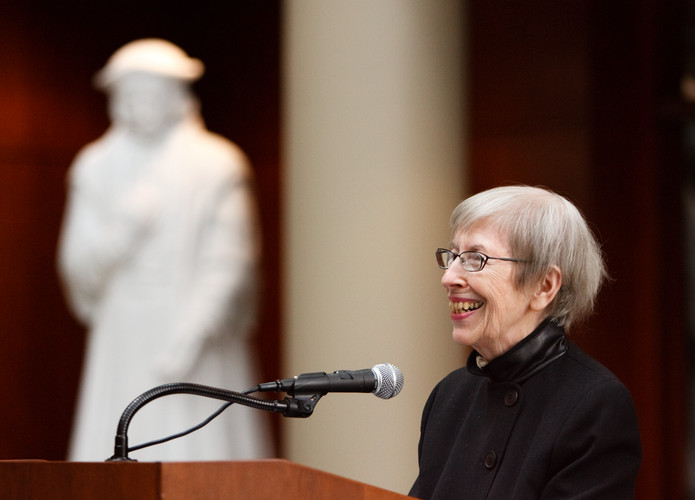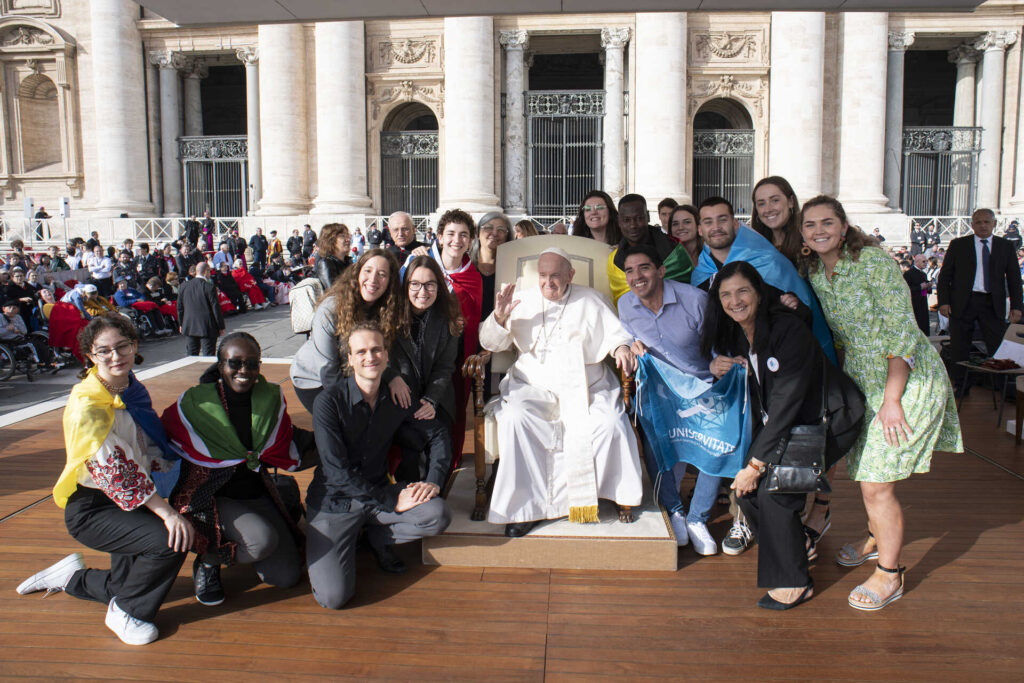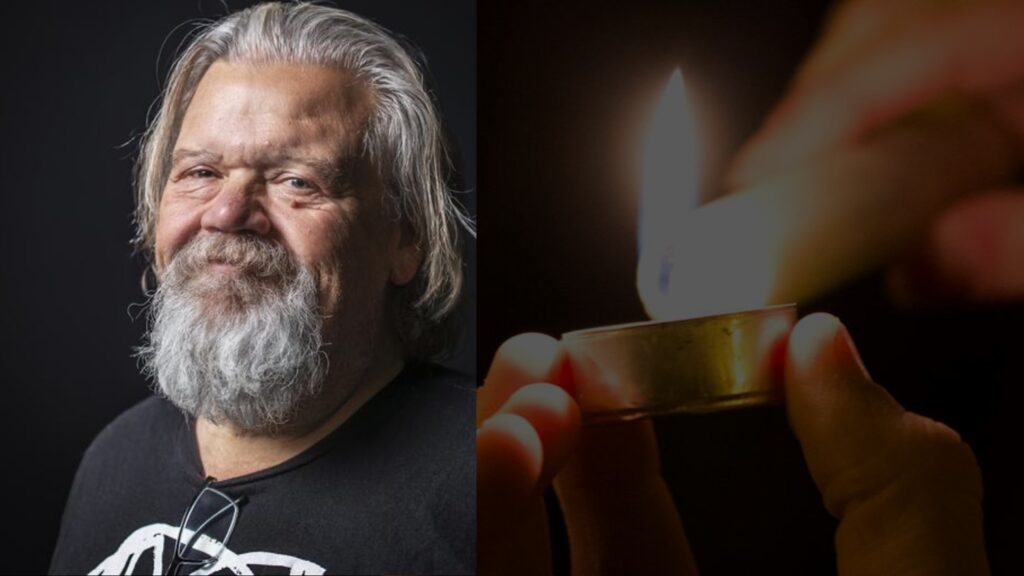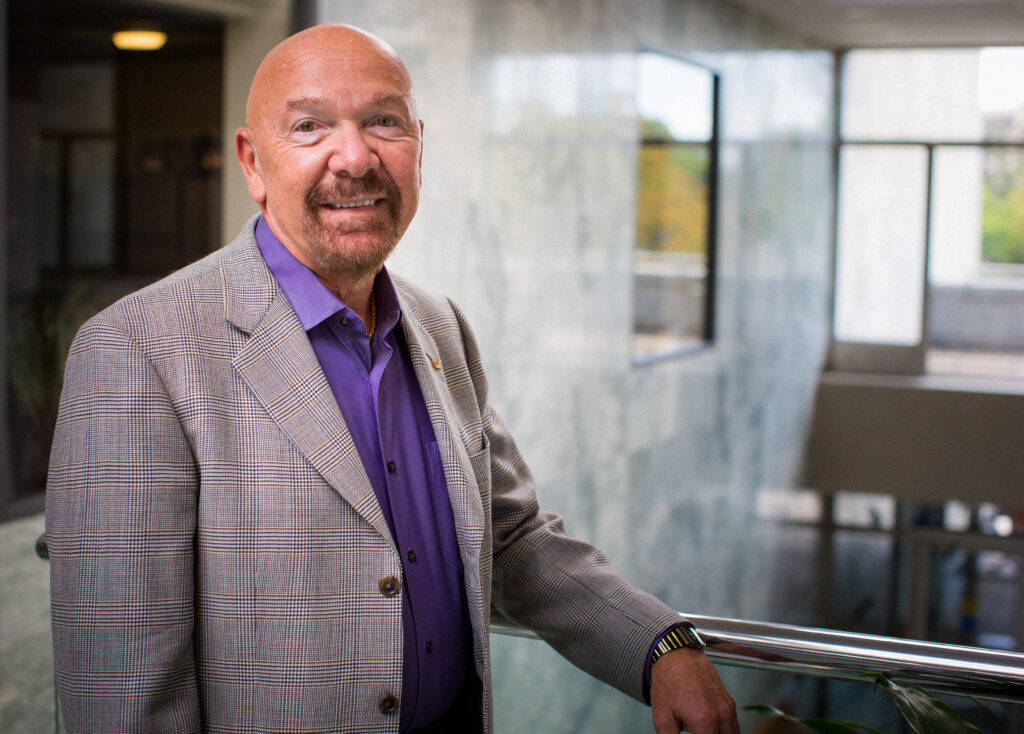Please remember in your prayers Diana Murphy, a judge for more than four decades and a member of the St. Thomas Board of Trustees since 1991 and the School of Law Board of Governors. She died Wednesday, May 16, at 84.
Friends and legal colleagues called Murphy one of the nation’s most respected jurists and a wise adviser who combined an unmatched work ethic, old-fashioned common sense and an innate ability to develop consensus.
“It is with a sad heart that we learn our beloved Judge Murphy has passed away,” President Julie Sullivan said. “She has been a pioneering, wise and inspiring leader. She is a close friend of so many people at St. Thomas and has been a compelling force for excellence at the university. She will be sorely missed. Please join me in lifting up Judge Murphy and her family in your prayers.”
School of Law Dean Rob Vischer said Murphy’s enthusiastic support for the school “gave us instant credibility in the field.” She served in 1999 as chair of an advisory committee that recommended St. Thomas reopen the law school, and was a founding member of its board of governors in 2001.
“Her knowledge of law and legal practice allowed her to help shape the vision of how a Catholic law school could make a meaningful difference, and her strategic thinking helped bring that vision into reality,” Vischer said. “She was never the loudest voice in the room, but when she spoke, everyone listened. She did not waste words, and her wisdom was borne of experience. In many ways, the hallmarks of our law school – a commitment to mentoring, to being a voice for those on the margins, to the formative power of community – were modeled through her life and the legacy she leaves in the lives of hundreds of lawyers and judges.”
Mike Ciresi, a 1968 alumnus and nationally renowned litigator who joined the Board of Trustees with Murphy in 1991, called her “a legal giant.”
“Her belief that the law was a powerful tool to serve the common good was uncompromising, and our state and nation will miss her,” he said. Referring to her diminutive physical stature, he added: “She was the personification of the adage that great things come in small packages.”
Ciresi also served with Murphy on the law school advisory committee in 1999 and on the Board of Governors, and said Murphy was committee chair for good reason.
“Her leadership was unerring,” he said. “She gave sage and eloquent advice and offered a perspective that no one else on the committee could give. She was the most powerful voice, given her insights into law, her sense of justice and what our law school could become.”
Father Dennis Dease, president of St. Thomas from 1991 to 2013, called her one of the most engaged trustees he served with on the board. Among her assignments were the Physical Facilities Committee and the Executive Committee, both of which she served as chair.
“She was intelligent, thoughtful and always prepared,” he said. “She showed great leadership and she knew how to gently manage conflict. She was able to cut through everything, get to the heart of the matter and state issues simply.”
Grew up in St. Paul
The Faribault native grew up in St. Paul, graduated from Central High School and enrolled at the University of Minnesota, where she majored in history. After graduating in 1954, she received a Fulbright Scholarship to study at Johannes Gutenberg University in Mainz, Germany. She later met Joseph Murphy in graduate school at Minnesota and they married in 1958.
She initially stayed at home with their two sons. She got involved in civic activities, she joked in a 1999 interview with St. Thomas magazine, after discovering “that being home all day and not talking to an adult was, well, you know, I needed other kinds of stimulation!” She served as president of the Minneapolis League of Women Voters, chair of the Minneapolis Charter Commission and on the boards of the Urban Coalition and the Minnesota Civil Liberties Union.
“I started to think, ‘What do I want to do?’ I wanted more of a long-term goal and I thought I had two options,” she said. “First, law school because I liked lobbying and organizing for civil rights groups and working for the underdog. Second, writing – poetry, short stories, essays.”
She enrolled in the University of Minnesota Law School in 1971 and graduated with membership in the Order of the Coif, granted only to those who worked on the law review (she was its editor) and finished in the top 10 percent of their class. She wanted to be a litigator but knew that opportunities were fewer for women.
“It was a much more questioning environment for women, especially litigation,” she said. “Would you be able to travel? What would you do when the kids were sick? Would jurors find you credible? It sounds hard to believe now ... but it was a very real issue.”
Lindquist & Vennum, a Minneapolis law firm, hired her in 1974 and just two years later Gov. Wendell Anderson appointed her as a municipal court judge in Hennepin County. Gov. Rudy Perpich promoted her to the Hennepin district court bench in 1978 and two years later President Jimmy Carter appointed her to one of two new federal judgeships in Minnesota. She became chief judge in 1992.
The late Robert Sheran, a 1936 St. Thomas alumnus who served as chief justice of the Minnesota Supreme Court in the 1970s, wasn’t surprised at Murphy’s remarkably quick ascent from law school graduate to the federal bench. She was “extraordinarily intelligent, industrious and objective – plus she has a real good feeling for people,” he told St. Thomas magazine. “She doesn’t put her common sense away when she deals with legal problems.”
President Bill Clinton chose Murphy to fill an opening on the 8th U.S. Circuit Court of Appeals in 1994 – the first woman on that court – and later appointed her chair of the United States Sentencing Commission. She juggled her duties on the bench and the commission, on which she served for five years, with no concerns about the workload.
“You learn how to organize yourself, and part of organization is good time management and setting priorities,” she said. She added with a laugh: “And I don’t play golf!”
She saw her role as a St. Thomas trustee to be an adviser, not a micromanager. She believed the university’s ultimate challenge was to be faithful to its mission as a liberal arts college on the undergraduate level while maintaining the practical vitality of its graduate programs – and doing this “so nothing spins out of control.”
St. Thomas conferred an honorary Doctor of Laws degree on Murphy in 2003, when she spoke at undergraduate commencement. Among her many honors was one from Minnesota Lawyer magazine earlier this year for “Outstanding Service to the Profession.”
Her husband, Joseph Murphy, a broadcast industry and banking executive, died in 2015. Survivors include sons Michael and John and two granddaughters.
A Mass of Christian Burial was at 2 p.m. Tuesday, May 22, at St. Olaf Catholic Church, 215 S. 8th St., in downtown Minneapolis.







